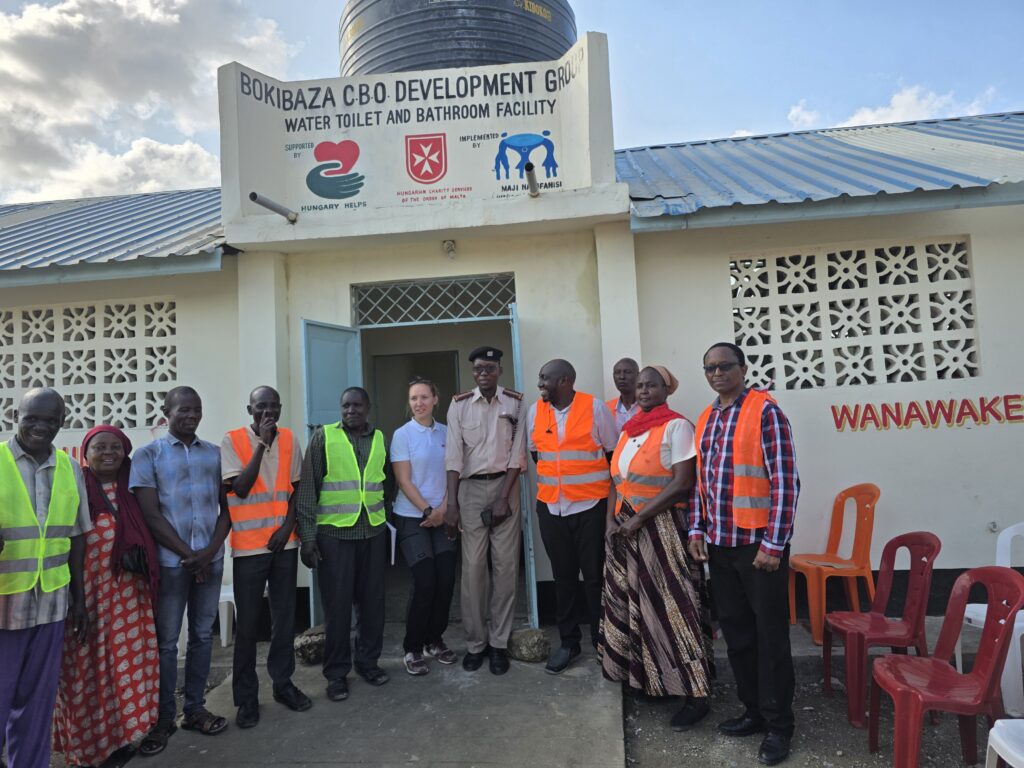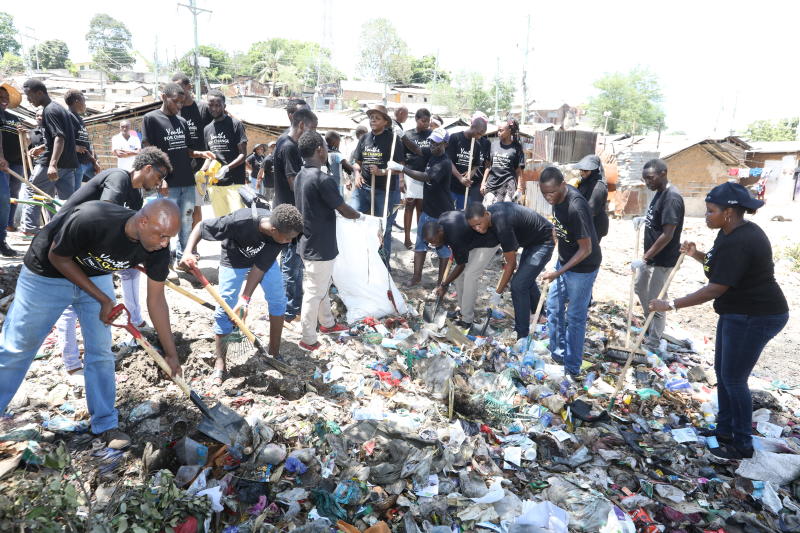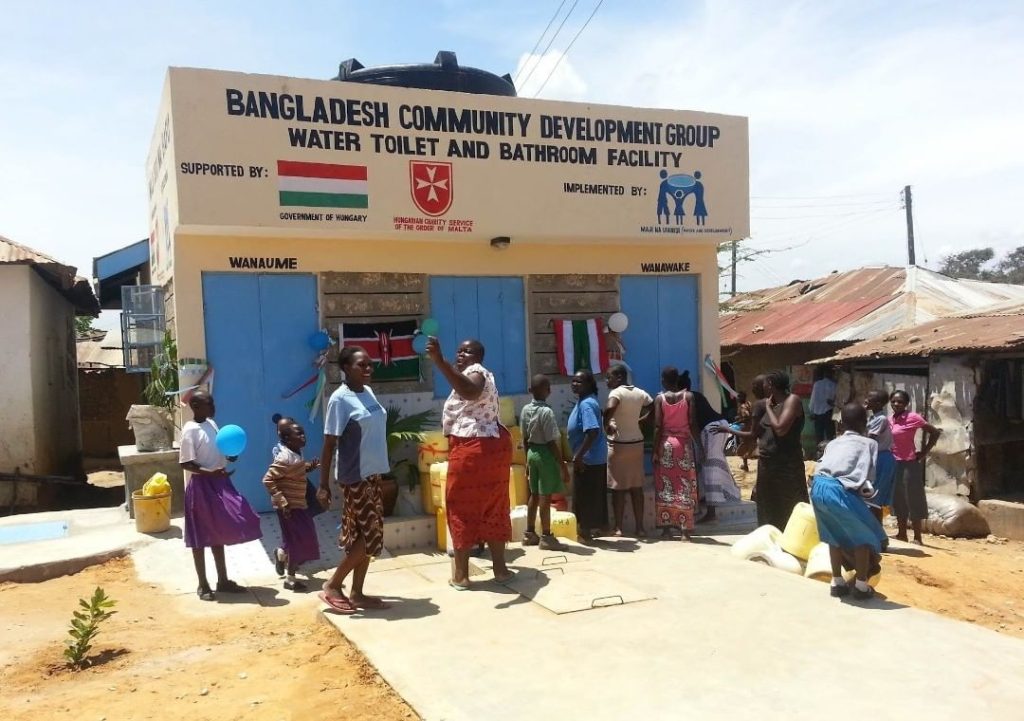Safe sanitation is saving lives in Mombasa.
Across informal settlements and urban streets, access to toilets is doing more than keeping people clean. It’s bringing hope, restoring dignity, and giving young people a way out of poverty.
In this article, you’ll learn how youth sanitation support programs in Mombasa are transforming communities, reducing disease, and opening new opportunities for Kenya’s most vulnerable young people.
Also Read:Maji Na Ufanisi:Success Stories from the Field
A detailed explanation of youth sanitation support in Mombasa
Mombasa faces a sanitation crisis. Nearly 60 percent of its residents live in informal settlements with limited access to safe toilets. Open defecation and poorly maintained latrines are common. This lack of basic infrastructure exposes young people to disease, crime, and social exclusion.
In response, organizations like Maji na Ufanisi have stepped in with a new approach: sanitation as empowerment. This means building public toilets that are not only safe and clean but also run by trained youth groups. These programs focus on employment, health, and dignity. And they are working.

The reality for youth in urban slums
Youth in Mombasa’s informal areas face multiple challenges:
- High unemployment rates, especially among young men and women under 25
- Exposure to waterborne diseases due to poor sanitation
- Limited access to safe, private toilets
- High risk of gender-based violence for girls and young women
- Low school attendance due to poor hygiene facilities
Without toilets, girls skip school during their periods. Young men are forced to defecate in public, risking shame and fines. These conditions create a cycle of poverty and vulnerability.
Sanitation facilities as hubs of opportunity
Safe toilets are doing more than reducing open defecation. They are becoming safe spaces, training grounds, and business incubators for young people.
Each sanitation block run by Maji na Ufanisi includes:
- Toilets and showers with water access
- Menstrual hygiene rooms for girls and women
- Sanitation job training for youth
- Management roles for young men and women
- Cleaning and security jobs with fair wages
By managing these facilities, youth earn income, gain skills, and take leadership in their communities. This reduces crime and boosts community pride.
Gender equality through safe toilets
Girls and young women benefit the most from these programs. Before youth sanitation support, many lacked safe places to change pads or relieve themselves. They faced shame and violence.
Now, gender-specific toilets and menstrual rooms offer:
- Privacy and safety
- Reduced school absenteeism
- Freedom to walk alone
- Improved self-esteem
Girls are reclaiming their public spaces. They’re studying more, dropping out less, and speaking up in community meetings.
Health improvements that save lives

Open defecation spreads deadly diseases like cholera, typhoid, and diarrhea. For children under five, these are leading causes of death in Kenya.
Youth-run sanitation programs have led to:
- 75 percent drop in open defecation in pilot areas
- Fewer hospital visits for diarrhea and skin infections
- Cleaner streets and drainage systems
- Lower risk of flooding during rainy seasons
By improving sanitation, Mombasa is improving public health. It’s saving families money and saving lives.
Youth employment that restores dignity
Employment is key to ending poverty. But most youth in informal settlements lack formal work. The sanitation sector gives them a second chance.
Maji na Ufanisi trains youth to:
- Clean and maintain toilets professionally
- Collect small user fees with transparency
- Educate users about hygiene and waste disposal
- Use digital tools to report issues
- Manage supplies and inventory
These skills transfer to other jobs. Former sanitation workers now work in hospitality, logistics, and administration.
How Maji na Ufanisi is helping with youth sanitation support and how you can help
Maji na Ufanisi is a leading WASH organization in Kenya. For over 25 years, it has pioneered youth-led sanitation programs.
In Mombasa, Maji na Ufanisi has:
- Built and rehabilitated over 20 sanitation blocks
- Trained more than 300 youth in toilet management
- Reduced open defecation in 7 major informal settlements
- Created partnerships with county governments for sustainability

These results come from collaboration, community engagement, and a strong belief in youth potential.
You can support this mission by:
- Donating to expand toilet access in underserved areas
- Partnering to provide menstrual products and hygiene kits
- Volunteering or offering mentorship to youth groups
- Sharing their stories on your platforms
- Funding new sanitation hubs near schools and markets
Every contribution helps a young person reclaim their dignity.
Youth sanitation support is changing Mombasa—will you be part of the change?
Every day, young people step into public toilets not only to stay clean, but to build a new life. Behind every latrine is a story of resilience, hope, and opportunity.
You can help expand youth sanitation support in Mombasa. Your donation builds more than toilets. It builds futures.
Support youth sanitation today. Give dignity. Give hope.
Frequently Asked Questions
1. What is youth sanitation support?
It’s the process of improving access to toilets and hygiene facilities for young people, while involving them in the design, maintenance, and management.
2. Why focus on youth in sanitation?
Youth are both most affected by poor sanitation and best positioned to lead change. Empowering them leads to long-term community improvements.
3. How does safe sanitation improve education?
With clean toilets, students—especially girls—miss fewer school days and feel more confident attending.
4. What health issues are linked to poor sanitation?
Cholera, typhoid, diarrhea, skin infections, and respiratory illnesses are common in areas with open defecation.
5. Are these sanitation blocks free to use?
They typically charge a small fee to cover maintenance. The funds are reinvested in the youth-run operations.
6. How are youth selected to manage facilities?
Through local community groups, youth associations, and training programs provided by Maji na Ufanisi.
7. What makes Maji na Ufanisi’s model different?
It integrates WASH services with youth employment, gender equity, and community ownership.
8. Can these models be replicated in other cities?
Yes. They are already being replicated in other counties across Kenya.
9. How do safe toilets protect women?
They reduce exposure to sexual harassment and provide safe spaces for menstrual hygiene.
10. What is needed to scale this work?
More funding, stronger policy support, and awareness campaigns to prioritize youth sanitation.


